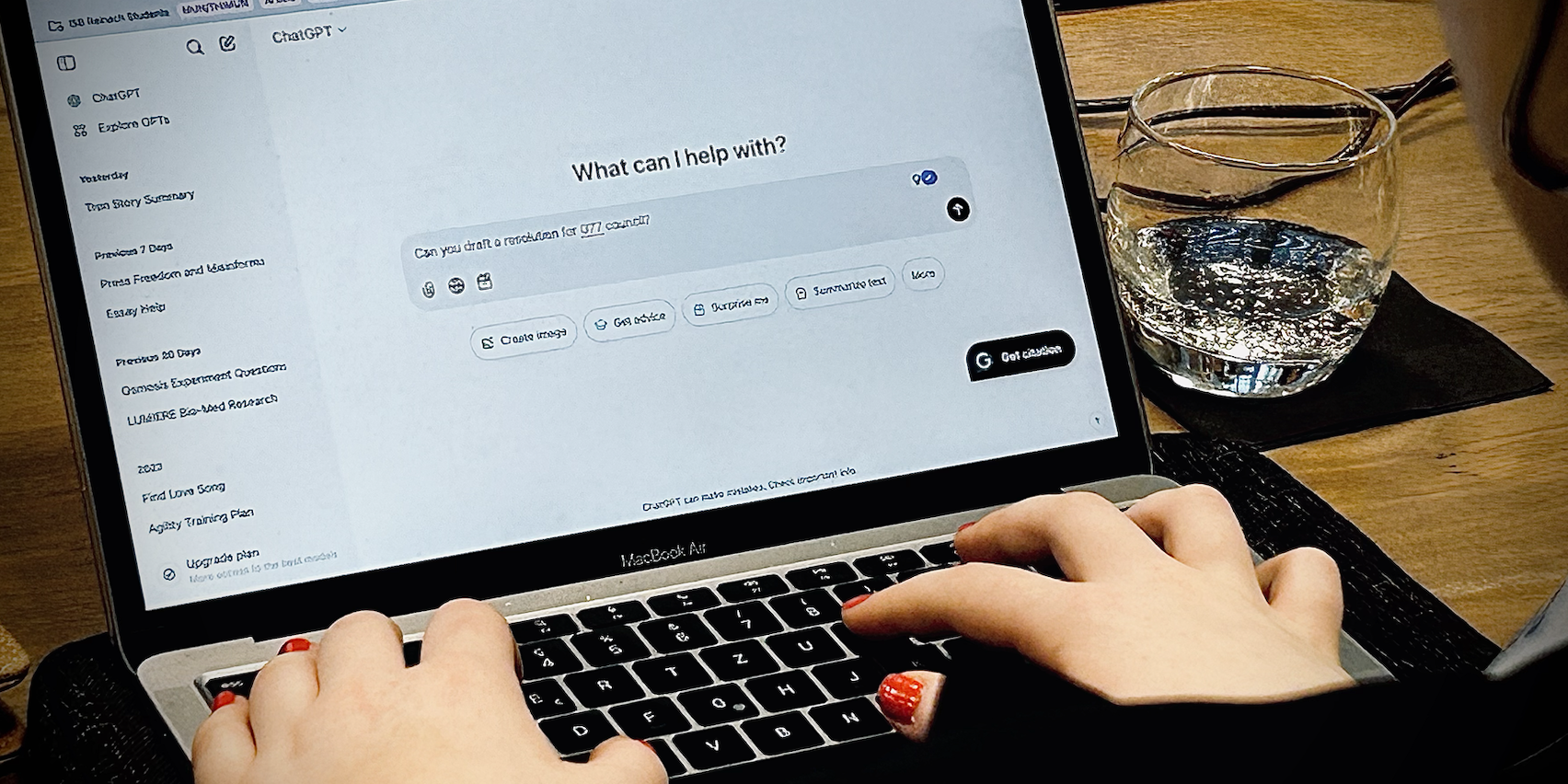AI: Your MUN Wingman
By Shrika Gadepalli
As Artificial Intelligence (AI) continues redefining the contours of the modern world today, it’s found a way into the realm of Model United Nations (MUN), profoundly influencing how negotiations progress. Delegates tasked with addressing complex issues—like governance, AI ethics and its societal impacts, –increasingly rely on the very technology they debate. This article delves into how AI tools shape MUN’s preparation, framing, delivery and argumentation while exploring the accompanying challenges and dilemmas.
Research forms the foundation of any effective MUN performance, and AI has revolutionised this process by offering unparalleled efficiency and breadth. With tools like ChatGPT and Gemini (formerly, Bard), delegates can analyse extensive datasets, condense intricate treaties, and synthesise multifaceted viewpoints within seconds. For instance, when deliberating the ethical dimensions of autonomous weapons systems, a delegate might use AI to distil legal principles from the Geneva Conventions or explore diverse perspectives, ranging from the stance of developing nations to that of multinational corporations and advocacy groups.
However, while AI facilitates an unprecedented depth of research, it is not without its limitations. Delegates must remain vigilant against the risks of misinformation, outdated data, and algorithmic biases. Relying solely on AI without critically evaluating its outputs, risks undermining the intellectual rigour that MUN cultivates. The delegate’s role, therefore, extends not only ro information retrieval but also to ensuring the veracity and reliability of AI-generated insights.
In addition to research, AI has become instrumental in the structuring and articulation of arguments. Position papers, for example, can be crafted with greater coherence and precision using AI tools capable of constructing logical frameworks and persuasive narratives. Furthermore, AI’s capability to stimulate counterarguments enables delegates to preemptively address opposing viewpoints, thereby enhancing the robustness of their positions. It also provides rhetorical refinements, tailoring language to resonate with specific audiences—be it the diverse General Assembly or a more specialised committee.
Nonetheless, the increasing use of AI in argument construction raises profound ethical questions. To what extent can arguments crafted using AI assistance be considered authentic? Does reliance on AI erode the originality and intellectual labour traditionally associated with MUN? These questions underscore the necessity of maintaining AI as an argumentative tool rather than allowing it to supplant the delegate’s critical thinking and creativity.
Public speaking, a cornerstone of MUN, has significantly been influenced by AI. Advanced platforms, like Poised, offer feedback on tone, pacing, and delivery while AI-powered simulations help delegates refine their oratory skills by mimicking audience reactions. Yet, such tools pose the risk of diminishing personal passion and authenticity that distinguish impactful speeches. The challenge lies in integrating AI-driven refinement without sacrificing the individuality and spontaneity of human expression.
Overdependence on AI risks undermining essential skills such as adaptability and independent thought. Moreover, the potential for AI-generated plagiarism and the inadvertent perpetuation of biases pose significant threats to the fairness and integrity of delegates. This raises a pertinent question: should MUN committees impose limitations or guidelines on the use of AI to ensure an equitable and intellectually athletic environment?
AI has undeniably become a transformative force, enabling MUN delegates to approach complex topics with greater sophistication and preparedness. Yet, as its influence grows, so does the imperative to navigate its integration responsibly. Delegates must strike a delicate balance—leveraging AI’s capabilities while preserving human ingenuity and ethical awareness that lie at the heart of meaningful diplomacy.
The question ultimately remains: will today’s delegates use AI as a crutch to diminish their potential or as a means to empower their voices?








